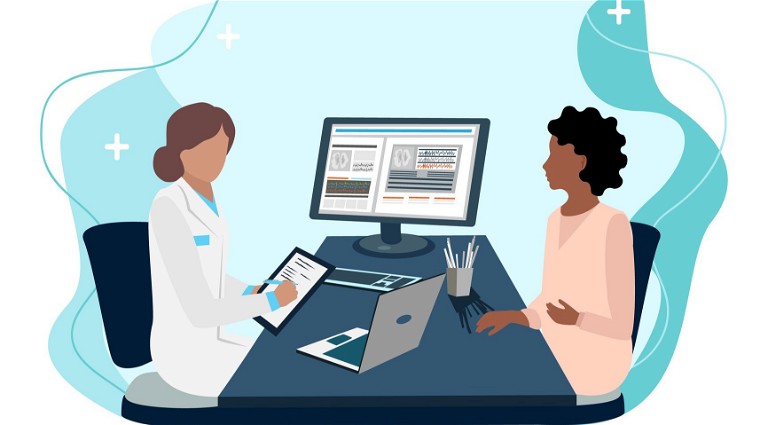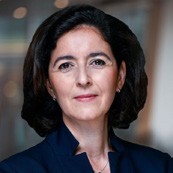Industry Insight
Rare disease clinical trials: the urgent need for patients to be heard
Ahead of Clinical Trials Day, Soraya Bekkali, from Alexion, AstraZeneca Rare Disease, highlights the urgent need to elevate patients’ voices to accelerate rare disease innovation
Recent estimates show that the number of rare disease clinical trials has risen over recent years, with over 16,000 studies being conducted across the globe.1 While we must celebrate this progress, there remains an urgent need to accelerate innovation, with no meaningful treatment options for 90% of the 10,000 known rare diseases.2 Critical to clinical trial success is ensuring the voices of people living with rare diseases are amplified and heard.3,4
No clearly defined clinical trial roadmap
Clinical trials are essential to establish the safety and efficacy of medicines, yet this can be challenging in rare diseases due to their unique and complex nature. Deep knowledge of the disease natural history is frequently lacking and sources of information that are available for more common conditions – assays, endpoints, patient registries, regulatory precedent – often don’t exist.4
Due to the small patient populations in rare diseases, a trial may need to be conducted in multiple centres and countries. There are additional challenges identifying patients due to diagnostic delays and the diverse presentation of each disease, and recruiting into trials where regimens require treatment-naïve participants. It takes on average five to eight years before a patient receives an accurate diagnosis, a journey often involving multiple doctors, specialists and misdiagnoses.5
Active listening is essential
Given the complexities of rare diseases, at Alexion, we believe that uncovering, understanding and incorporating insights from patients and caregivers into every stage of research and development is critical.
In a survey conducted by the Boston Consulting Group, 72% of patients ranked ‘trials that reflect the real world and outcomes that matter to them’ as one of the most vital attributes of patient-centricity and 66% said that ‘seeking patient input’ was highly important.6
Alexion was the first company to adopt the Patient Friction Coefficient (PFC), a data-informed metric to measure the burden of taking part in a rare disease clinical trial. Time spent travelling to distant specialist centres for testing and treatment can be significant and the insights gathered help to inform trial protocols at an early stage and put mitigation plans into action, such as conducting remote visits through telemedicine, tailoring support services to patient needs and being willing to open a site for clinical trial participation – even if it’s just for one patient.

Seeking ongoing direct patient feedback to inform how we define and evaluate trial outputs is also crucial. The often-incomplete understanding of disease pathology can lead to challenges with how to design clinical trial endpoints that demonstrate meaningful outcomes for patients. Alexion conducts forums to gather external insights and identify the ‘Moments that Matter’ along the patient disease journey to inform clinical trial programme design.
Amplifying the patient voice through new technologies
Artificial Intelligence (AI), machine learning and digital health technologies also are increasingly being used to revolutionise approaches to research and development.
Alexion is collaborating with Ad Scientiam to develop and validate novel digital biomarkers for the self-assessment of patients, to better understand the real impact of these diseases on patients’ lives. Combined with AstraZeneca, through our health tech business, Evinova, implementing digital health technology in clinical trials is helping to improve the patient experience and drive healthcare transformation with accelerated timelines and reduced costs.
Patients are waiting
As we approach Clinical Trials Day, let’s remember why science and discovery across the rare disease community truly matters. People living with rare diseases around the world are urgently awaiting diagnosis, treatment and care. It is only by putting patients’ insights and their voices at the centre of research that progress can be accelerated. Every day counts.
References
- Visit: novotech-cro.com/whitepapers/raredisease-global-clinical-trial-landscape
- Visit: rare-x.org/wp-content/uploads/2022/05/be-counted-052722-WEB.pdf
- Kaufmann, P. et al. From scientific discovery to treatments for rare diseases – the view from the National Center for Advancing Translational Sciences – Office of Rare Diseases Research. Orphanet J Rare Dis. 2018;13(1):196
- Mellerio, JE .The challenges of clinical trials in rare diseases. Br J Dermatol. 2022;187(4):453- 454.
- Visit: eurordis.org/our-priorities/diagnosis/
- Visit: bcg.com/publications/2020/what-patients-want-is-pharma-delivering

Soraya Bekkali MD, is a trained medical doctor and SVP EUCAN & International Business at Alexion, AstraZeneca Rare Disease, a global biopharmaceutical company focused on developing life-changing therapies for people living with rare diseases. She is also a member of the Board of Directors for EuropaBio, Europe’s largest biotech industry group.